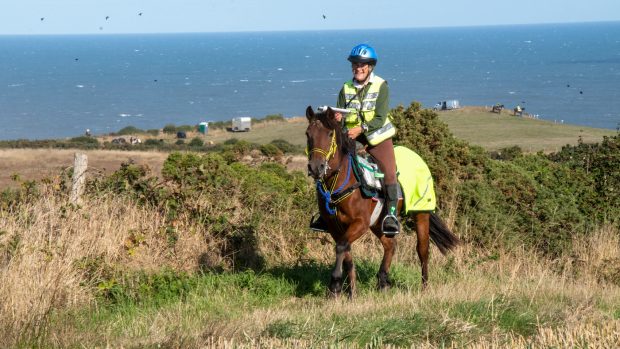The sport of TREC (Techniques de Randonne Equestrian de Competition) tests a horse and rider’s ability to find their way across country using a map, while coping with obstacles and terrain that might be encountered on route.
This friendly sport, which is overseen by the British Horse Society, has been popular on the continent for more than 25 years, but has only recently reached our shores.
Competitions are made up of three phases which take place over two days. It is suitable for the vast majority of leisure riders.
Understanding the phases
Phase one, POR, is the Optimum Speed and Orienteering Course which takes place on day one. This is the ridden orienteering part of the competition. You have to follow a given route at an optimum speed. Along the route will be checkpoints.
Phase two, CG, is the Control of Gaits which takes place first on day two. Along a track 2m wide and up to 150m long you must canter as slowly as possible. You then walk back along the route as quickly as possible.
Phase three, PTV, the Cross-Country Riding Course is the last section and takes place on day two. This is a timed course of 16 obstacles ranging from the ordinary, such as jumping a log or crossinga stream to the more unusual, such as crossing a foot bridge or riding under artificial low branches.
Levels of competition
There are four levels of competition ranging from level one, for those new to the discipline, to level four, which is approachingworld championship status.
At level one the orienteering phase is up to 12 kilometres in length and the jumps in the obstacle section are a maximum height of 2ft. Riders can miss out any obstacles they choose.
The competition is suitable for children as well as adults and can be ridden in pairs or even on the lead rein at levels one and two.
Finding the right horse
The ideal horse for TREC is a laid-back riding club type which is obliging and easy to control. Native or cob types are ideal for the lower levels of competition. Temperament is much more important than breeding or type as the horse needs to remain calm throughout the two days.
For further information on TREC contact Rob Jones at the BHS (tel: 01308 861149) or visit the BHS website at www.bhs.org.uk.




